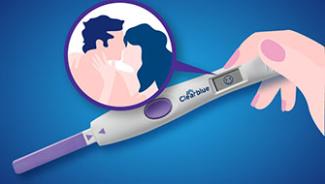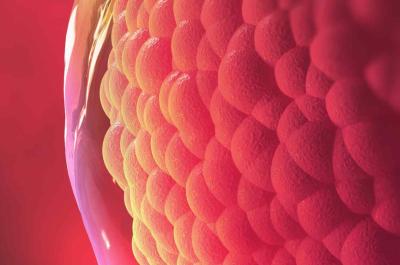
Periods or menses are the regular bleeds that a woman has, usually occurring once a month and lasting 3-7 days. Pre-menstrual syndrome is used to describe the sometimes annoying and unpleasant symptoms that a woman can experience in the days leading up to her period.
What to know about your menstrual cycle
Painful periods
Periods can sometimes be painful and most women will, at one time or another, have suffered from ‘period pains’. Some women have very painful periods (called dysmenorrhoea), which can cause significant discomfort for a few days each menstrual cycle.
You can treat period pains with over-the-counter painkillers, but if you have very painful periods, it’s best to see your doctor.
Heavy periods
Some women suffer from heavy periods. This is called menorrhagia and is defined as excessively heavy and prolonged bleeding. Most women shed roughly 6 to 8 teaspoons of blood in a period, but it’s almost impossible to measure this. If you find that you need to change your tampon or sanitary pad very often (more often than is recommended by the manufacturer) and if you see large clots of blood, then you could be suffering from unusually heavy periods.
Heavy periods can be caused by a number of things, including a hormone imbalance, an intrauterine device (IUD), or fibroids; although for lots of women, the cause can be unknown.
Heavy periods are not necessarily painful periods. However if you are unlucky enough to suffer from heavy, very painful periods and having your period actually stops you doing things for a couple of days a month, it’s worth going to see your doctor to talk about how you can treat the pain and the heavy bleeding.
It’s advisable to go and see your doctor if you continue having heavy periods, to make sure you don’t become anaemic (deficient in iron, which may make you feel tired and faint).
There are several treatments available to you, depending on the cause of your heavy bleeding. If it is caused by hormone imbalance, there are a number of drugs that can be prescribed to correct the imbalance, for other causes alternative treatments are available.
Missing periods
Some women find that after having had a completely regular cycle for a number of years, they may then not have a period for a significant length of time. The first thing to do if this happens is to rule out pregnancy, by doing a home pregnancy test.
The medical term for missing your periods for more than 6 months is ‘amenorrhoea’. There are lots of reasons why your periods may suddenly stop, including putting on or losing weight very quickly, excessive exercise and stress. If you find that you are having hot flushes and a decreased interest in sex, it might be that you have the first signs of the menopause (peri-menopause).
Whatever your symptoms, see your doctor if your regular periods change or stop.
What is pre-menstrual syndrome (PMS)?
What is PMS?
Pre-menstrual syndrome (PMS) is also called pre-menstrual tension (PMT) and is a term used to describe the broad range of symptoms that many women develop during the second half of the menstrual cycle.
PMS includes a whole range of symptoms and it is estimated that up to 75% of women experience one or more of them every month. These can include
-
tender breasts
-
depression
-
anxiety
-
headache
-
tiredness
-
irritability and aggression
-
bloating of the abdomen
-
food cravings
PMS symptoms are most often experienced by women in their 20's and 30's, although all women who have periods are susceptible to PMS. For most women, the symptoms cause only mild-to-moderate discomfort or difficulties, but in some cases PMS can be severe. This is called premenstrual dysphoric disorder (PMDD).
What causes PMS?
PMS is probably your body’s response to changing hormone levels associated with your menstrual cycle although nobody really knows its actual cause. It is also thought that chemical changes in the brain might be involved in PMS, and that diet may have an impact (especially salty foods and caffeinated drinks).
How do I know if I have PMS?
There are various ways to diagnose PMS, but no definitive test for it. There are also other medical problems with similar symptoms to PMS, so if you are concerned you should see your doctor.
To help diagnose PMS, it’s worth keeping a diary for 3 or 4 months where you write down any physical and mental PMS symptoms that you have when they occur, together with your days of bleeding. It’s useful to make a note of how you are feeling every day. After 3 or 4 months, you’ll probably be able to recognise a pattern of symptoms. Although the pattern may vary from cycle to cycle, women with PMS tend to notice that their symptoms stop very quickly once their period actually starts. Another pattern that might help your doctor to diagnose PMS is if you have a week during your menstrual cycle when you have no symptoms at all.
What can I do to relieve my symptoms?
There are a number of options open to you for relieving your PMS symptoms, but it can take some trial and error to find a method that works best for you.
Some of the most straightforward things that have been shown to help are to make sure you drink plenty of water and eat a balanced diet. It’s a good idea to include lots of fresh fruit and vegetables and reduce the amounts of salt, sugar and processed foods that you eat. Many women find that avoiding caffeine (commonly found in tea, coffee and cola) and alcohol when they have PMS can reduce some symptoms. Taking supplements of vitamin B6 and evening primrose oil has additionally been suggested as a possible way of reducing PMS symptoms.
Regular exercise can also help, mainly because exercise reduces stress and tension and can lift your mood. If you are suffering from PMS, you might find that walking, swimming or running reduces your period symptoms – try for 30 minutes, 3 times a week.
If these simple lifestyle changes are not helping to manage your PMS, you should see your doctor for further advice.

Find your most fertile days
Ovulation tests are an accurate and simple way to identify your most fertile days to maximise your chances of getting pregnant.

Accuracy when you need it most
No brand is more accurate: our Pregnancy Tests are over 99% accurate from the day you expect your period, for confidence when you need it most.

